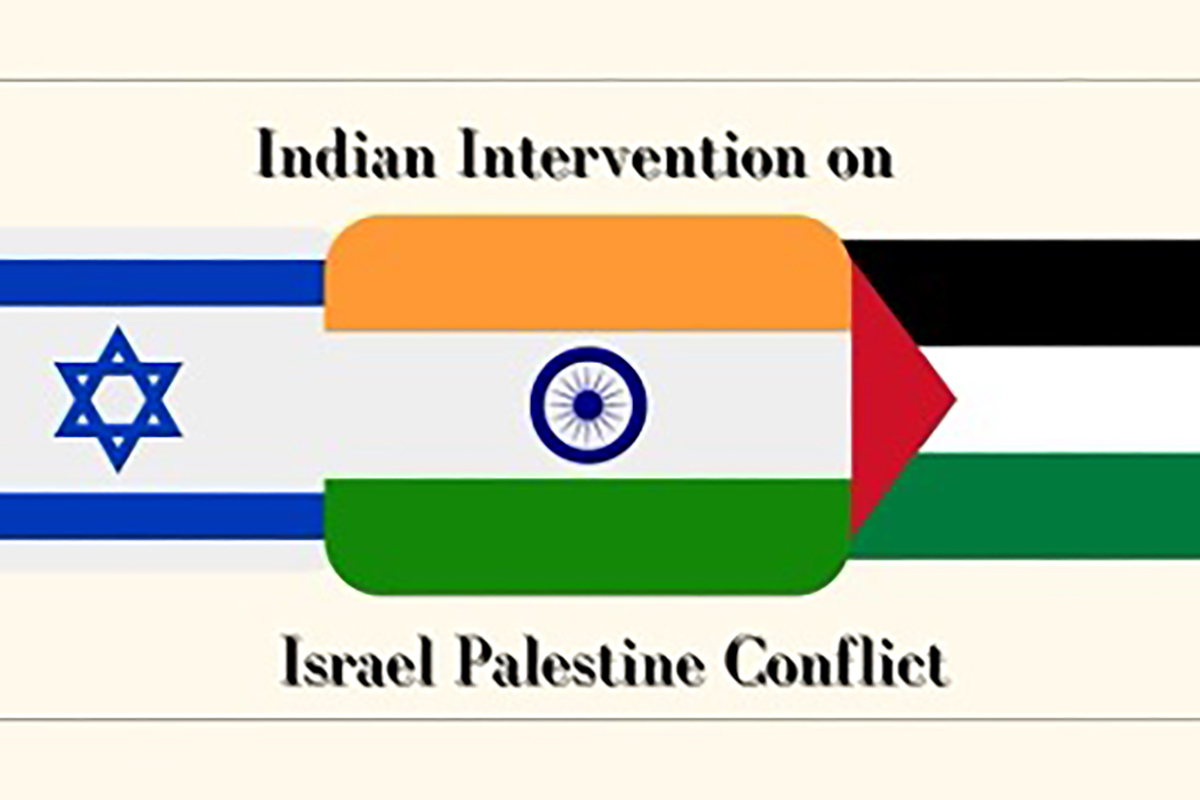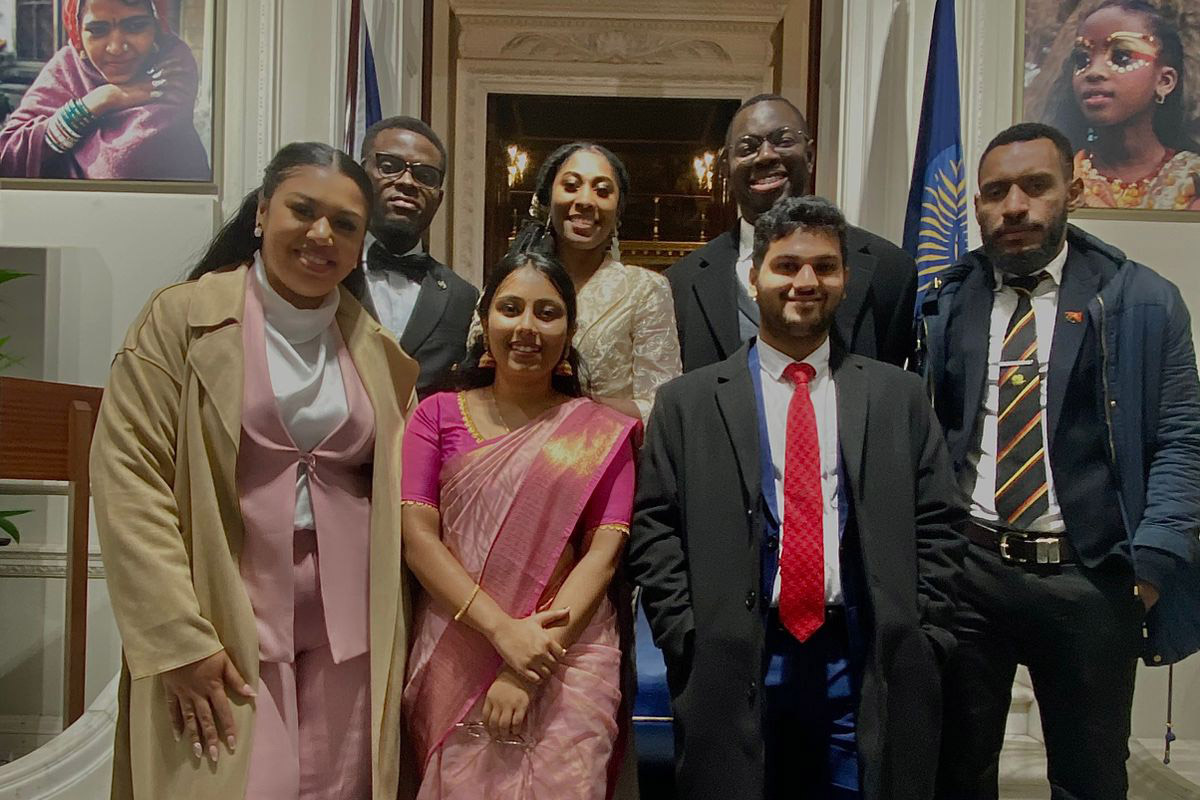Reimagining Indian Intervention in the Israel-Palestine Conflict
January 9by Diksha Gupta and Ainesh Dey
The article delves into the broader geo-strategic positioning of India against the backdrop of the ongoing conflict between Israel and Palestine.
India’s Non-Linear Engagement in the Region: A Brief Overview
As the Israel-Palestine conflict rages on, India’s de-hyphenation policy, which calls for valuing independent relationships with Israel and Palestine, each on its own merit, as reflected in India’s latest statements at the UN Security Council, unequivocally hit upon the need for the resumption of direct dialogue and the overall de-escalation of tensions.
Interestingly, India’s present diplomatic approach to the crisis, remains largely debatable; its unique historical context gives it substance, especially against the backdrop of the growing multilateralism.
An erstwhile champion of the Palestinian cause, as reflected in its opposition to the “Two-State” solution endorsed by the United Nations; recognition of the Palestinian Liberation Organisation (PLO), to the extent of giving full diplomatic status to its New Delhi office in 1980; and the widespread objection to Israel’s construction of a wall along the West Bank in 2003, India’s unwavering commitment to her notion of a “balancing act”, rooted in pragmatism and non-alignment has become a significant driver in its involvement.
This “balancing act” has been accentuated by Israel’s significant support to India through provision of defense technology for the Kargil War as well as the 2019 Balakot crisis, during which India used Israeli Spice-200 bombs.
India’s position, which has been enunciated by India’s Ministry of External Affairs Spokesperson, Arindam Bagchi is “adoption of a global responsibility to fight the menace of cross-border terrorism in all its forms and manifestations”. This position calls for mature understanding and evaluation, and adherence to international humanitarian law.
In this regard, the consequent projection of an image of a “global moderator”, has been the bedrock of India’s global and regional credibility. Its voice in proxy wars in Israel, Arab states or Iran, is reflective of not only her reliance on foreign energy sources, but also her broader endeavor to stabilize economic, strategic, institutional and people to people ties, in the Middle Eastern region.
The “Balancing Act” Ordeal – The Road to Diplomatic Dexterity
There has been a considerable shift from India’s pro-Palestine belief to a neutral stance in the present times. Advocating the two-state solution as proposed in the 1991 Madrid Peace Conference, India’s commitment to a diplomatic approach towards the Israel-Palestine conflict is characterized by a delicate balancing act.
On one hand, India maintains strong historical and cultural ties with the Palestinian people and has been a supporter of their aspirations for self-determination and statehood.
On the other hand, she has also nurtured a deepening relationship with Israel, including in areas such as defence, agriculture, technology, and trade.
In line with her nuanced international commitments, India’s protracted engagement with the conflict dates back to its own struggle against colonialism and apartheid.
As one of the founding members of the Non-Aligned Movement (NAM) in 1961, India expressed support for Palestinian self-determination and strongly condemned Israel’s occupation of Palestinian territories.
This support was further emphasized by India’s recognition of Palestine as a state in 1988.
However, at the same time, India began to establish closer ties with Israel, primarily in the areas of defence and security cooperation. In the 1990s, India and Israel forged bilateral agreements on defence, intelligence sharing, and counter-terrorism.
Implications of the Conflict and the Shift in India’s Geo-strategic Commitments : A Conclusion
The war between Israel and Palestine can have several implications for India. In 2022, Indian imports of military and defence equipment, and technology cooperation from Israel amounted to $1.2 billion. As the conflict continues, Israel might focus more on its internal security obligations thus jeopardizing India’s needs in the defence sector.
India being an importer of oil from the Middle East, any escalation in the conflict might affect oil prices directly impacting her economy. The ongoing conflict might prove to be a stone in India’s path to integrate trade with Europe through its ambitious India-Middle East-Europe Economic Corridor.
India’s unique position in the world order and its increasing influence in the existing frame of multilateralism can help India play a constructive role in promoting diplomacy and dialogue between the two parties based on the two-nation theory. India can yield its soft power and encourage dialogue and exchanges between different cultural groups, academia and youth of the region to promote trust and understanding.
Notes and Bibliography :-
- Kugelman, Michael. 2023. “Will India Draw Closer to Israel?” Foreign Policy. October 12. https://foreignpolicy.com/2023/10/11/india-israel-hamas-war-diplomacy-palestine/.
- Blarel, Nicolas. “Modi looks West? Assessing change and continuity in India’s Middle East policy since 2014.” International Politics 59, no. 1 (2022): 90-111.
- Saranya, Antony A. “India-Israel Relations: The Palestine Factor and De-Hyphenation Approach.” IUP Journal of International Relations https://toda.org/global-outlook/2023/indias-balancing-act-limited-liability-partnership.html17, no. 1 (2023): 20-41.
- Wheeler, Tom, and Alan Z. Rozenshtein. 2015. “How India Can Maintain Its Delicate Israel-Palestine Balancing Act.” Brookings. November 3. https://www.brookings.edu/articles/how-india-can-maintain-its-delicate-israel-palestine-balancing-act/.
- Wulf, Herbert. 2023. “India’s Balancing Act: ‘Limited Liability Partnership.’” Toda Peace Institute. October 31. https://toda.org/global-outlook/2023/indias-balancing-act-limited-liability-partnership.html.
Co-author Profile:
Diksha Gupta is a sophomore at Miranda House, University of Delhi, India who is currently pursuing Economics. A dynamic student, an avid reader and a hardworking passion driven student, her interests are varied ranging from international relations, trade to developmental economics.






